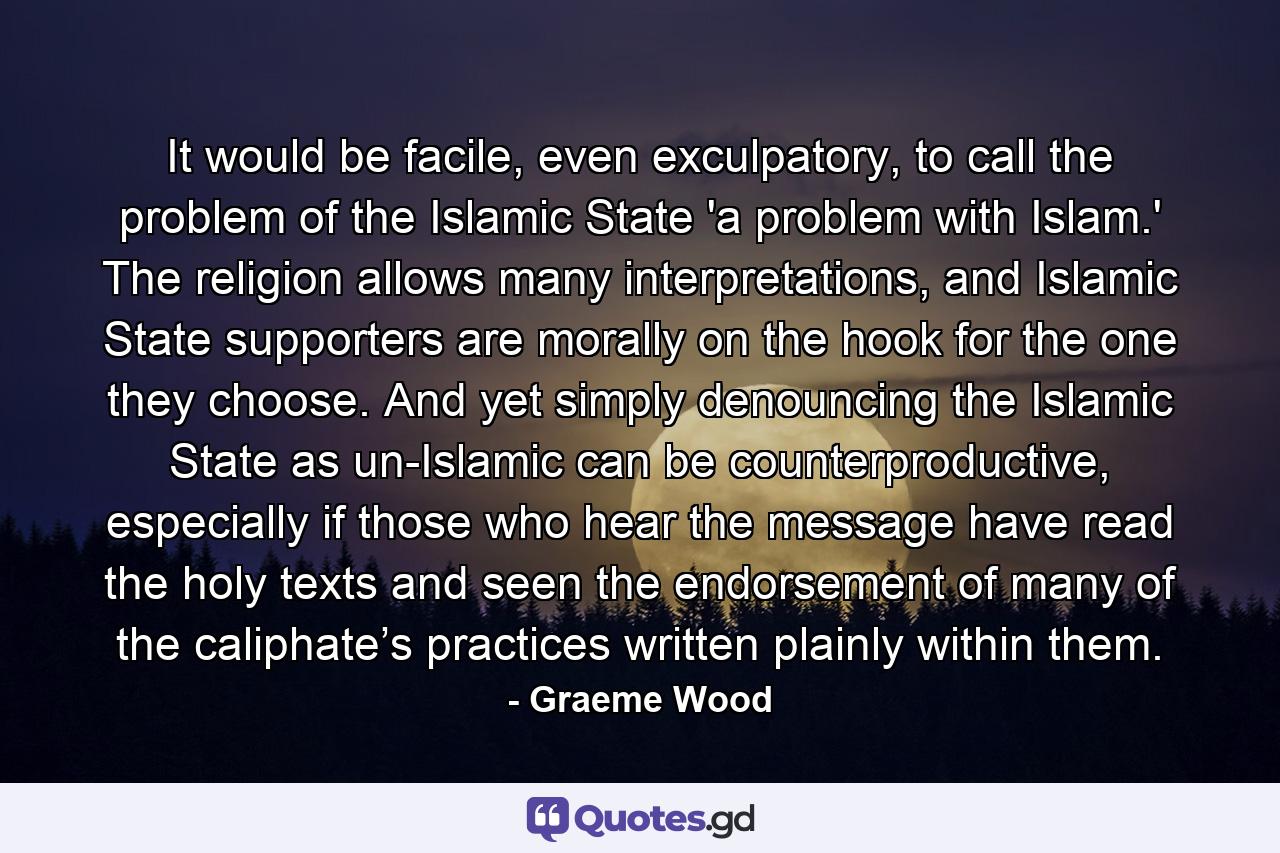Centuries have passed since the wars of religion ceased in Europe, and since men stopped dying in large numbers because of arcane theological disputes. Hence, perhaps, the incredulity and denial with which Westerners have greeted news of the theology and practices of the Islamic State. Many refuse to believe that this group is as devout as it claims to be, or as backward-looking or apocalyptic as its actions and statements suggest."Their skepticism is comprehensible. In the past, Westerners who accused Muslims of blindly following ancient scriptures came to deserved grief from academics—notably the late Edward Said—who pointed out that calling Muslims 'ancient' was usually just another way to denigrate them. Look instead, these scholars urged, to the conditions in which these ideologies arose—the bad governance, the shifting social mores, the humiliation of living in lands valued only for their oil."Without acknowledgment of these factors, no explanation of the rise of the Islamic State could be complete. But focusing on them to the exclusion of ideology reflects another kind of Western bias: that if religious ideology doesn’t matter much in Washington or Berlin, surely it must be equally irrelevant in Raqqa or Mosul. When a masked executioner says Allahu akbar while beheading an apostate, sometimes he’s doing so for religious reasons.


